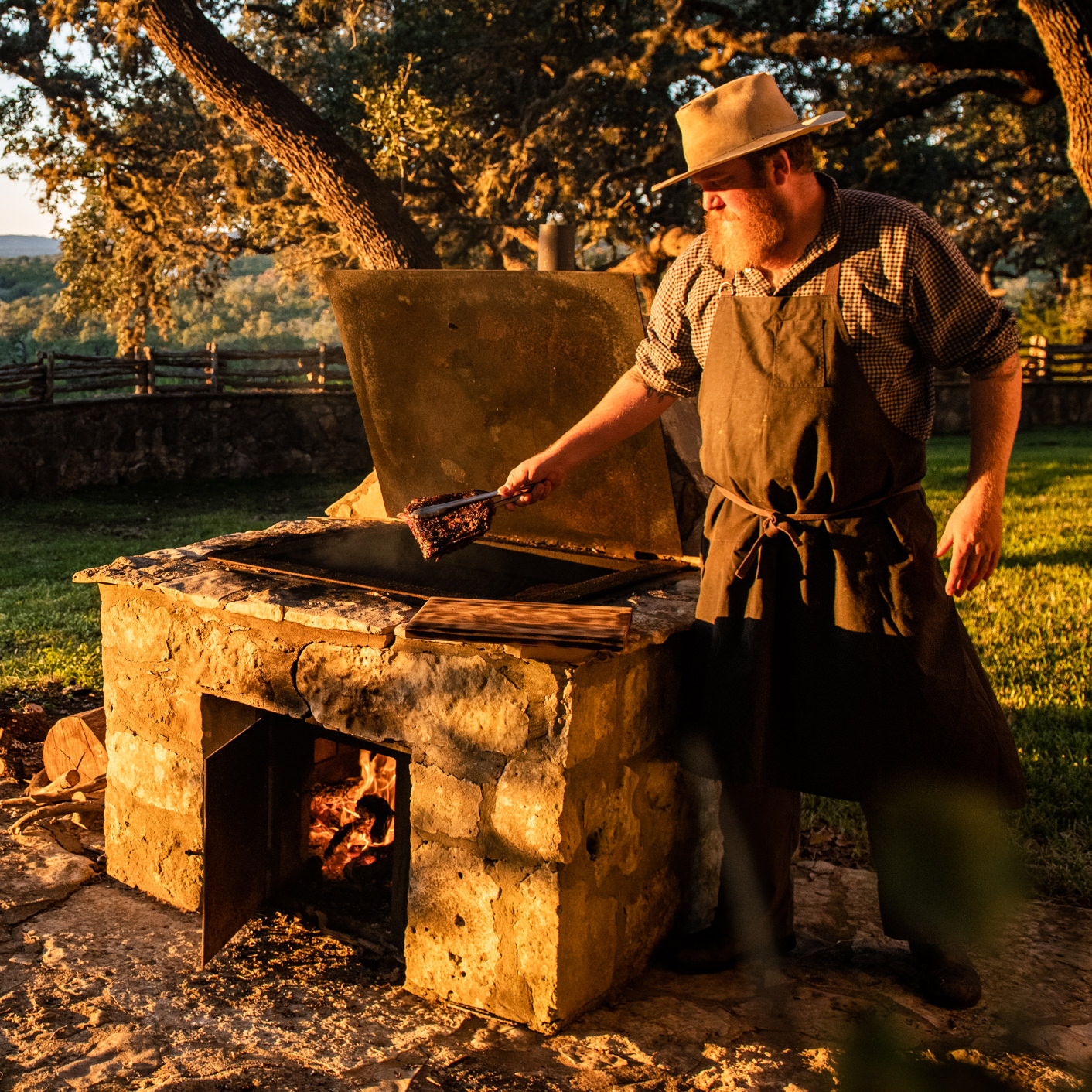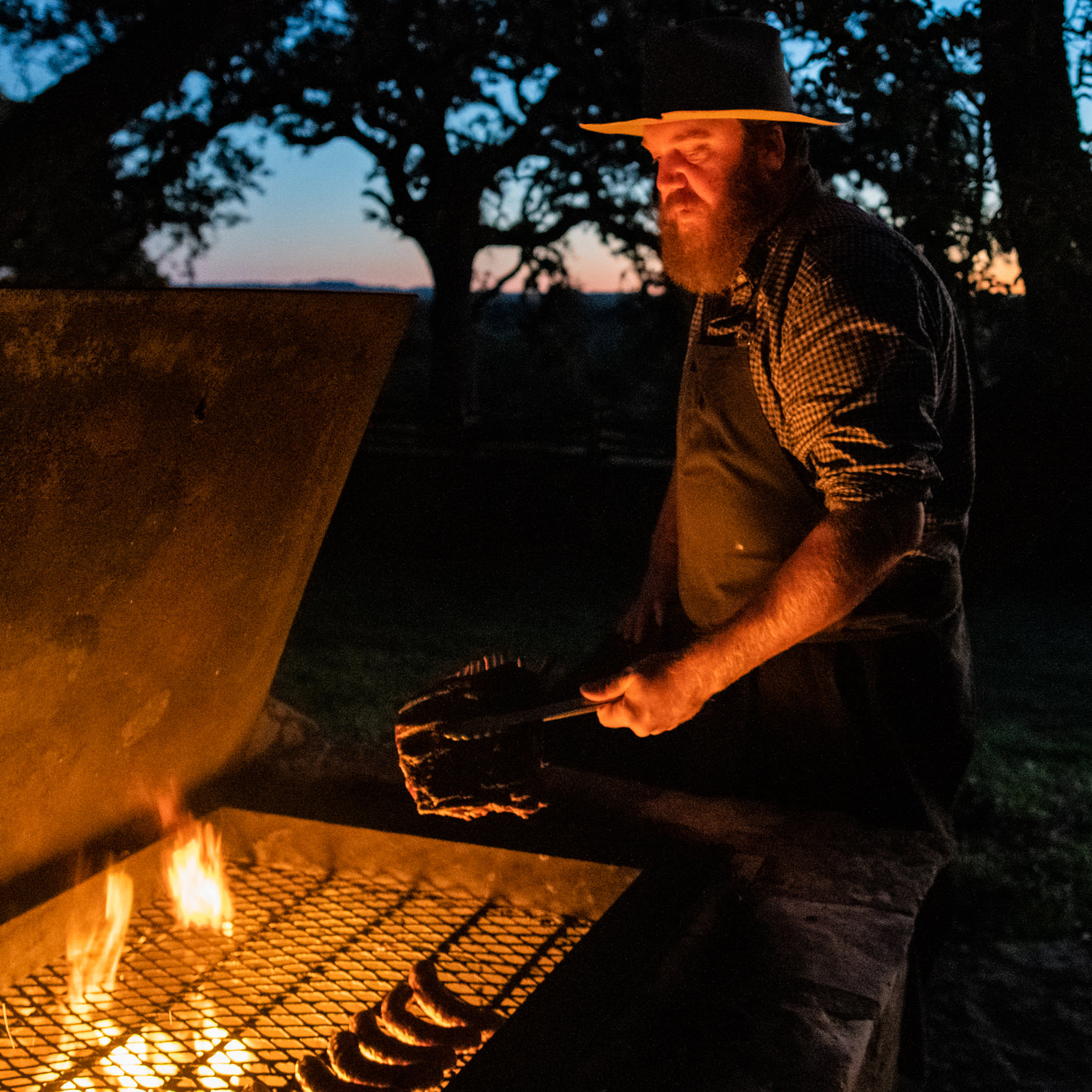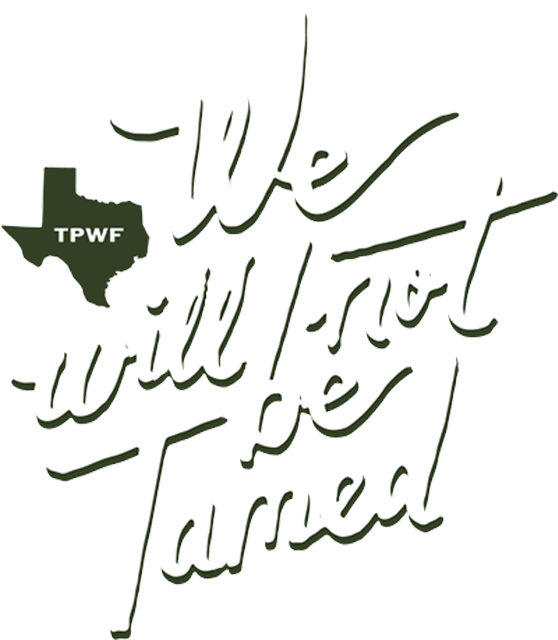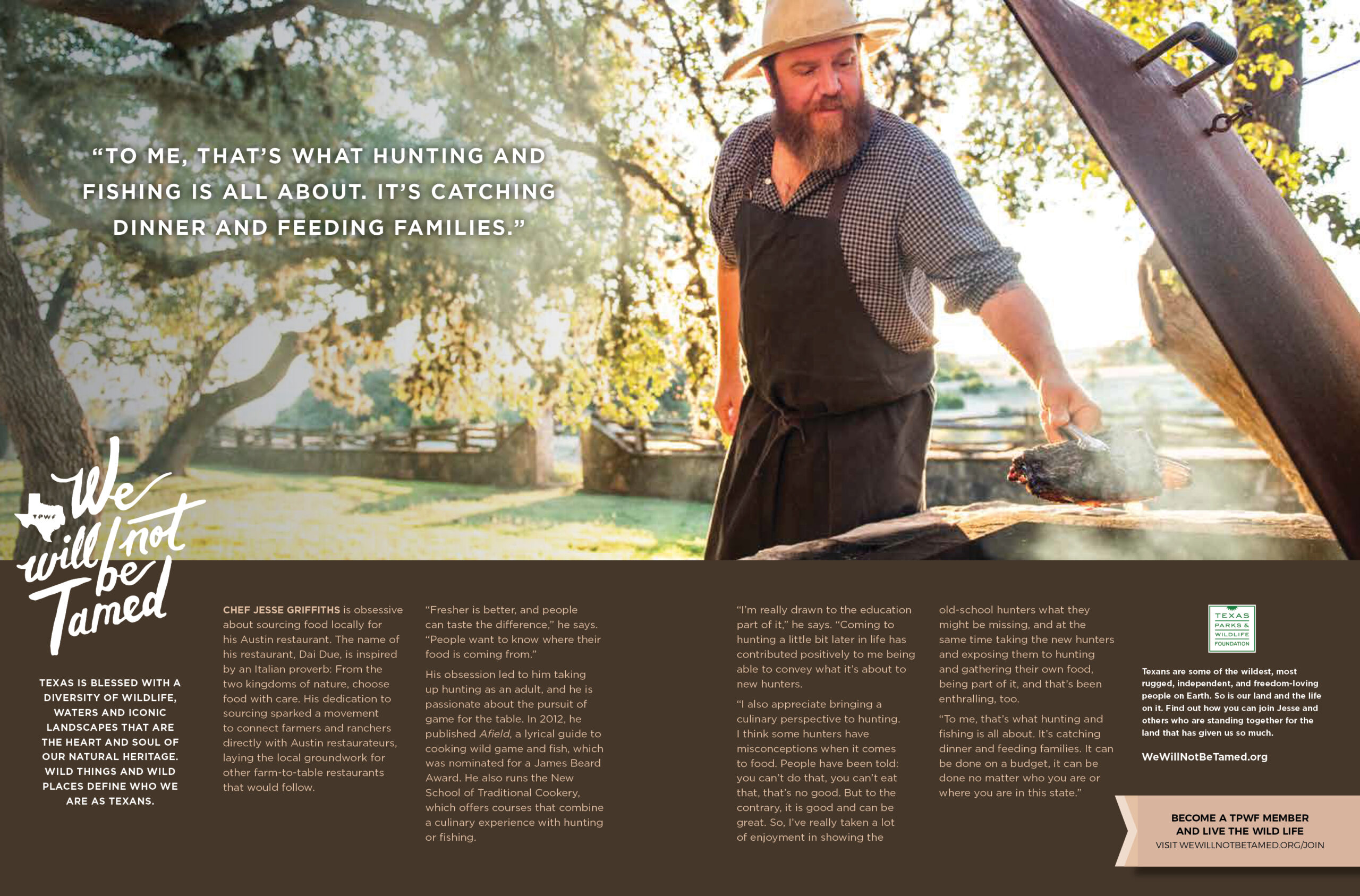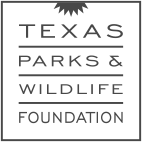Jesse Griffiths is the chef and co-owner of Dai Due, which was founded in 2006. The brick-and-mortar restaurant opened in 2014 and was named one of the best new restaurants in the country by Bon Appetit magazine in 2015. Since then, Dai Due has gone on to become an Austin mainstay, and is defined by its strict sourcing of Texan ingredients, constantly changing seasonal menu and focus on game meats. The moniker is inspired by an Italian proverb: “From the two kingdoms of nature, choose food with care.” Now Dai Due is connecting customers directly to food sources by offering hunting, fishing, and whole-hog butchery classes. In 2012, he published Afield, a lyrical guide to cooking wild game and fish, which was nominated for a James Beard award. His second book, The Hog Book, is dedicated to the topic of hunting and cooking feral pigs, won the James Beard award in 2022.
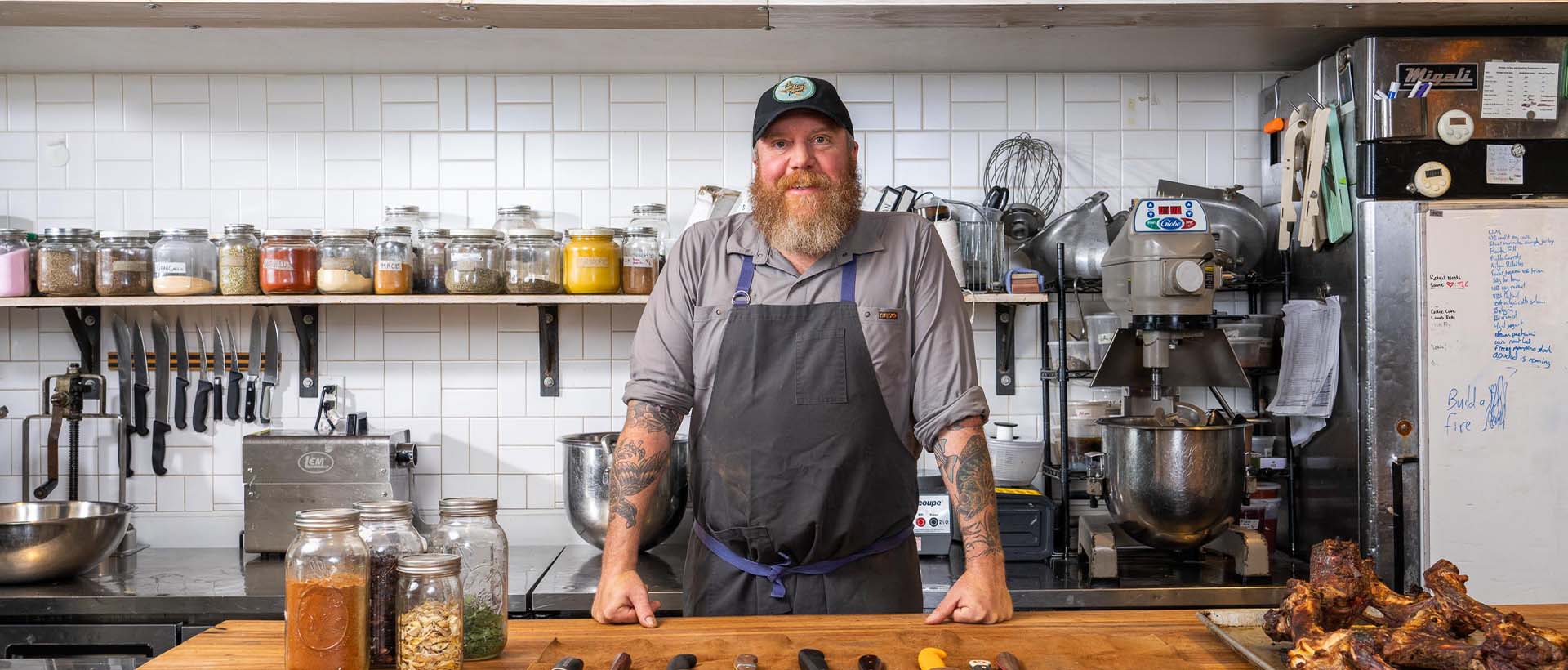
I want to help people make the connection between the outdoors – fishing, hunting, foraging – and food. Great healthy, natural food. Through our school, we hope to empower people to get the most out of their outdoor experiences and show that it can be an everyday part of life.
Read more about Jesse
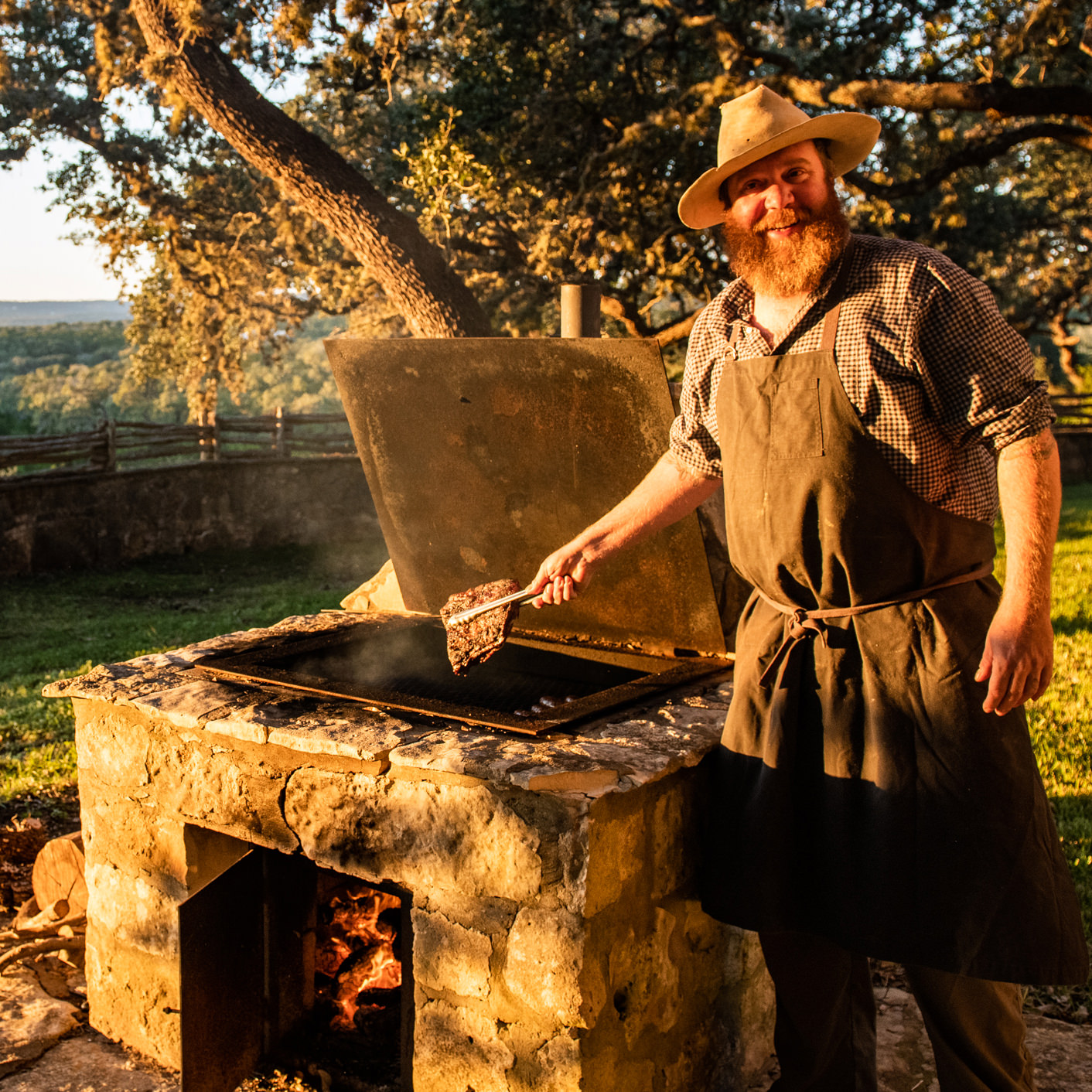
Jesse Griffiths has been a trend-setter in the Austin restaurant scene for more than a decade. Radio and podcast host Cecilia Nasti has been following sustainable food trends in Central Texas for years. We caught up with both of them recently for a culinary conversation. Listen in on our latest podcast.
Q&A with Jesse Griffiths
Q: Why do you think Dai Due has struck such a chord in Austin and beyond?
Fresher is better, and people can taste the difference. The idea for locally sourced food really resonated in Texas because of tradition. No matter what culture you are from here in Texas, the way your grandparent cooked is meaningful. One of the traditions we’re connecting to is hunting and fishing. Hunting, fishing, the farmer’s market, raising chickens in your own back yard are all kind of the same thing to me. People want to know where their food is coming from.
Q: Have you always hunted and fished?
I grew up fishing and have fished as long as I can remember. Hunting was new to me and I took it up in 2006 when Dai Due began working with only locally sourced food. What could be more local than hunting and fishing? So, I got out there with friends who are hunters and learned how to hunt. I made my own mistakes and learned from them.
Q: What was the reaction from your nonhunting friends?
The reaction has been surprisingly good. To this day I don’t think I’ve gotten much in the way of hate mail or whatever you want to call it in modern internet terms. Austin was at least willing to listen. People have a very preconceived notion of what hunting or hunters are like, and as I’ve said repeatedly, hunting culture gets mixed up too much with gun culture, and it doesn’t have to be that way.
Q: Through Dai Due’s New School of Traditional Cookery you now offer courses that offer a culinary experience that includes hunting or fishing. What has the response been?
It’s been great. I’m really drawn to the education part of it. Coming to hunting a little bit later in life has contributed positively to me being able to convey that to new hunters. Because I remember and it is really fresh in my memory what it was like to learn.
I also appreciate bringing a culinary perspective to hunting. I think some hunters have misconceptions when it comes to food. There’s certain myths and misconceptions about edibility of certain things, be it the belly meat of venison, or feral hogs in general. People were told: you can’t do that, you can’t eat that, that’s no good. But to the contrary, it is good and can be great. So, I’ve really taken a lot of enjoyment in showing the old- school hunters what they might be missing, and at same time taking the new hunters and exposing them to hunting, gathering their own food, being part of it, and that’s been enthralling, too. To me that’s what hunting and fishing are all about, it’s catching dinner and feeding families. It can be done on a budget, it can be done no matter who you are or where you are in this state. And I think just getting that information out there and making it available to everyone is empowering.
